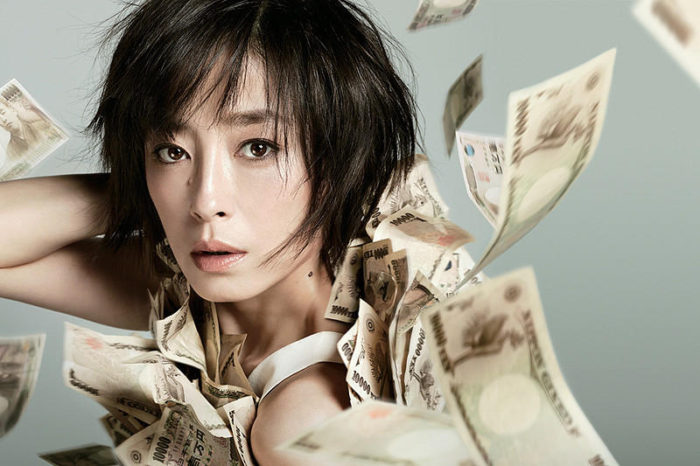Published in the Nikkei Asian Review 10/12/2015
For the past thirty two years, the sombre visage of a kimono-clad middle-aged man has gazed at the world from the obverse of the Japanese ten thousand yen note. The man is Yukichi Fukuzawa, a famed educator and journalist who was highly influential in the tumultuous years before and after the Meiji Restoration of 1868.
The American hundred dollar bill features a portrait of Benjamin Franklin; hence the sobriquet benjamin, as celebrated in rapper Puff Daddy’s It’s All About the Benjamins. In Japan Fukuzawa’s monetary presence has become so familiar that the ten thousand note has been dubbed a yukichi. But if a group of pacifist intellectuals gets its way, the great man will soon be bumped off the banknote.
Fukuzawa is famous for his embrace of Western notions of individual autonomy and equality, as expressed in his slogan “Heaven makes no man superior to any other man.” He also believed that men and women were equal in capabilities and should have equal rights. At the same time he believed in the existence of a hierarchy of strong and weak civilizations in which Japan’s at-the-time undeveloped neighbours were unfavourably placed.
This is what has attracted the wrath of the activists, who include Junosuke Yasukawa, Emeritus Professor at Nagoya University, and Tetsu Kariya, author of the Oishinbo foodie manga. According to Kariya, Fukuzawa’s intellectual support for colonialism paved the way for the disasters of militarism, war and national destruction some forty years after his death. Hence the start of a nationwide campaign to erase him from Japan’s money.
Critical re-assessment of major historical figures is a familiar and healthy process. In the hands of political activists, though, history is often reduced to a weapon for use in today’s ideological battles.
The demands appear to be getting more strident. At Princeton, for example, students are campaigning for the name of Woodrow Wilson, the 28th president of his country and 13th president of Princeton, to be expunged from university facilities, including the Woodrow Wilson School of Public Policy and International Affairs. Wilson’s sin is that he re-introduced segregation into the federal workforce and thus stands accused of racism. Meanwhile at the University of Texas the student body is demanding the removal of statues of Confederate leaders such as Robert E. Lee.
BOOTLEGGER BEN
The men and women of the past were not saints, but complex, flawed human beings who had to live by the lights of the world as it was then, not as it is now. Aristotle and Plato lived in societies dependent on slave labour and would have been slave-owners themselves, as was Thomas Jefferson who fathered children with a female slave.
Winston Churchill got many things wrong, from his disastrous stewardship of the British economy in the 1920s to his stubborn opposition to Indian independence. But he got one big thing right, Hitler’s Germany, and it is for that reason he will appear on a series of five pound notes next year. As for Benjamin Franklin, in his publishing business he pirated the work of British authors just as ruthlessly as any backstreet bootlegger copying Hollywood movies
Fukuzawa is no different. He lived in a world in which there were the colonizers and the colonized and precious little in-between. A helpless, unmodernised Japan would surely have been gobbled up by the Western powers in the late nineteenth century, just like the Philippines, Vietnam and many others. Rapid modernization was an existential necessity. In his famous article Datsu-A Ron (“Theory of Exiting Asia,”) Fukuzawa recommended that Japan cease to identify with its “two bad friends”, a phrase that still rankles with China and Korea today. The terminology sounds harsh to modern ears, but the warning was prescient.
“In my opinion, it is impossible that these two countries can remain independent under the violent wind of civilization moving eastwards… As with the massive scale of our Meiji Restoration, they should reform their governments so the hearts of their people may be renewed. If they depart from that approach, it is most likely their empires will fall within a few years.”
While championing liberalism and encouraging Korean reformers, Fukuzawa also favoured realpolitik and, in later life, went through an authoritarian phase, prompted by disillusionment with Western rapacity.
WHO FITS THE BILL?
The physical characteristics of money, particularly the choice of human images, is highly political. Britain’s money always features the queen on the obverse, with inventors, writers and scientists on the reverse of the banknotes. China chooses to keep Mao Zedong, one of the twentieth century’s bloodiest dictators, on several banknotes in order to offer an impression of political continuity and thus legitimacy. In the early 1980s Japan made the opposite point by choosing cultural figures such as Fukuzawa to replace the previous gallery of political leaders, including the oligarch Hirobumi Ito who was assassinated by a young Korean radical in 1909.
Fukuzawa quite literally fits the bill because his own story is so closely entwined with modern Japan’s, contradictions and all. Born into a low-ranking samurai family, he did not go to school until he was fourteen. He studied Dutch in Nagasaki and then was one of the first Japanese to travel widely in the United States and Europe. On his return he was targeted for assassination by anti-foreigner extremists.
Fukuzawa went on to found Keio University and a national newspaper, helped set up Japan’s first modern bank and a Western-style police force, introduced double-entry accounting and public speaking and coined the Japanese words for such previously unknown concepts as competition.
Benjamin Franklin’s portrait has adorned the American hundred dollar bill for over a hundred years. Contemporary observer Professor Basil Hall Chamberlain of Tokyo Imperial University considered Fukuzawa to be the Japanese equivalent of Franklin. On that basis, there is no reason why he shouldn’t carry on staring out from Japan’s highest denomination banknote for a long time to come.
